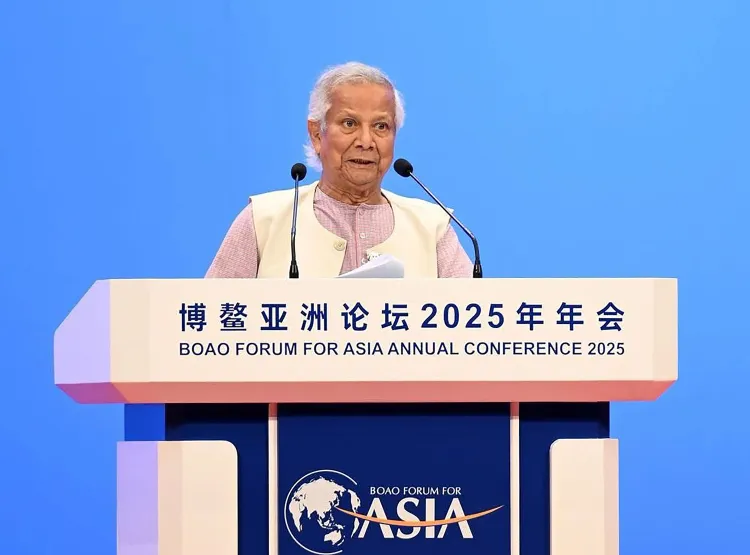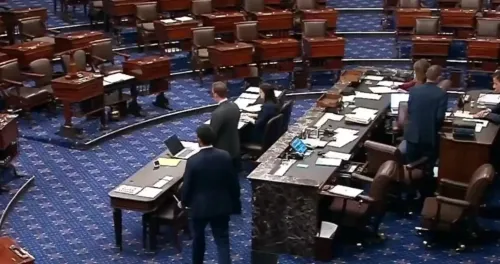Is Bangladesh Deepening Its Security Ties with China?

Synopsis
Key Takeaways
- Bangladesh's security ties with China are strengthening.
- Recent arms deals highlight a shift in military strategy.
- Bangladesh is moving away from an 'India-first' policy.
- The implications for regional stability are significant.
- US influence in the region is diminishing.
Dhaka, Oct 29 (NationPress) Under the interim administration of Muhammad Yunus, Bangladesh has been steadily drawn into a security framework constructed by China, which threatens not only regional stability but also the fundamental concept of strategic diversity within South Asia, as noted in a recent report.
The most evident indication of this transition emerged when the interim cabinet sanctioned a $2.2 billion agreement to acquire 20 Chinese J-10CE fighter jets. This decision aligns with a larger trend, coinciding with the visit of Pakistan’s Director-General Joint Staff, Tabassum Habib, to Dhaka, which marks a revival of elevated military connections.
“Bangladesh finds itself at a crucial juncture — one that could reshape the geopolitical landscape of South Asia. The removal of Prime Minister Sheikh Hasina in August 2024 created a gap central to the country’s foreign policy. The result has been a swift pivot from Hasina’s 'India-first' strategy towards embracing China and Pakistan as new security allies,” highlighted a report from the American publication The National Interest.
The report further elaborated that while the expanding influence of Beijing captures headlines, the situation is more nuanced — and Washington still possesses opportunities to influence Dhaka’s decisions with the appropriate strategy.
It was mentioned that Bangladesh has joined a new trilateral partnership with China and Pakistan, while also commencing new military training programs with Islamabad. The report emphasized that Bangladesh, which was previously closely allied with India, now seems equally at ease with both China and Pakistan.
“China’s strategy has been both tangible and symbolic. The J-10 sale is accompanied by commitments for defense industrial collaboration, port enhancements, and significant gestures—President Xi’s meeting with Yunus in March 2025 reaffirmed Bangladesh’s significance in China's South Asia agenda. Concurrent outreach from Pakistan—offering co-production and training—further integrates Dhaka into a developing Sino-Pak defense network,” the report asserted.
As Beijing and Islamabad have rapidly engaged with Dhaka, Washington appears to be falling behind and lacking a coherent strategic focus.
“The latest significant dealings between the US and Bangladesh have been commercial rather than military. In July 2025, Bangladesh procured 25 Boeing passenger aircraft and increased wheat and cotton imports to alleviate the US trade deficit. While these actions assisted Bangladesh in lobbying against impending US tariffs, they did little to advance American strategic interests in the region,” the report concluded.









